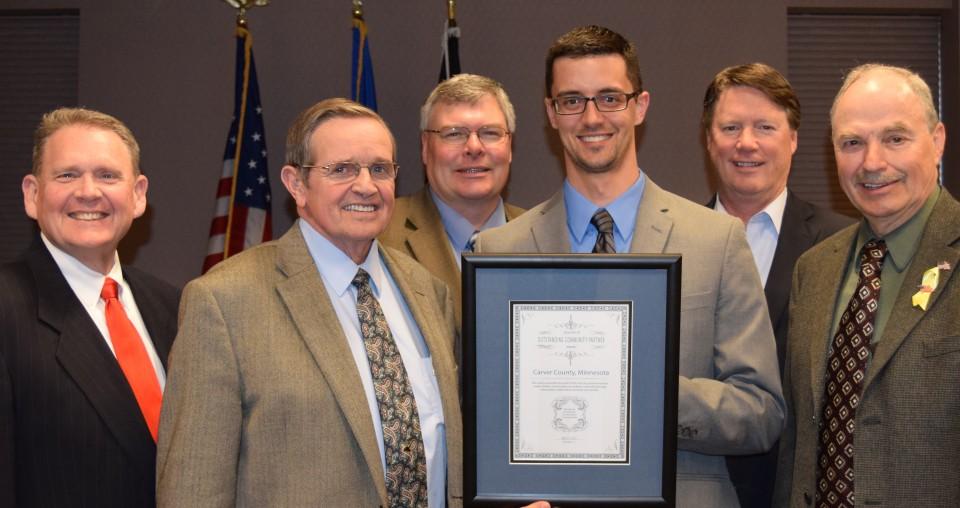RCP’s current community partner, Carver County, has received the 2016 Outstanding Community Partner Award from the Educational Partnership for Innovation in Communities (EPIC) Network.
The award, which recognizes "one exemplary community partner” from among the local government partners that have worked with EPIC Network programs during the last five years, was presented at the 5th Annual Sustainable City Year Conference, held in San Diego, CA, March 13-16. Nate Kabat, a planner at Carver County and the program coordinator for the County’s current partnership with RCP, accepted the award.
“The Resilient Communities Project partnership has been extremely valuable to Carver County and it's partners,” Kabat said in accepting the award. "The success of this project stands on the shoulders of all the dedicated staff, faculty, students, and officials who have teamed up throughout the school year." In nominating Carver County for the award,
RCP Director Mike Greco highlighted Carver County’s exceptional effort to assemble, coordinate, and manage the year-long community-university partnership, which involves 34 projects and more than 20 staff leads from eight different organizations, including five departments at Carver County (Administrative Services, Parks, Planning and Water Management, Public Health, and Social Services), SouthWest Transit, Eastern Carver County Independent School District 112, the Carver County Community Development Agency, the Carver County Historical Society, and the Cities of Victoria, Chaska, and Watertown.
He also noted how Carver County projects have stimulated new graduate student research opportunities through course work and individual masters thesis projects, as well as the extraordinary responsiveness of staff to the hundreds of students working on projects and the County’s commitment to providing opportunities for students to gain professional experience beyond their classroom work through presentations to community organizations and governing bodies.
